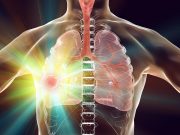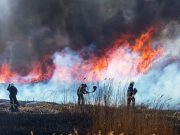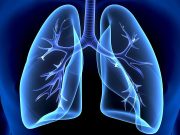Molecular Residual Disease Analysis May Predict Disease Recurrence After Lung Cancer Resection
Molecular residual disease precedes DFS events in patients receiving osimertinib, placebo; most events occur after osimertinib discontinuation or completion
Denoised Ultra-Low-Dose CT Better for Identifying Lungs With, Without Pneumonia
Fine details better visualized in denoised ultra-low-dose CT images in adults who were immunocompromised
COPD Tied to Increased Risk for Death in Patients With Arthritis
Findings seen for both all-cause and cardiovascular disease mortality
Lung Cancer Screening Adherence Rates Decline Annually After Baseline Screening
Annual screening adherence linked to increased overall and early-stage lung cancer detection rates
Adenotonsillectomy Tied to Lower Health Care Use in Pediatric Sleep Disordered Breathing
Fewer office visits and outpatient procedures were the primary drivers of the difference in health care encounters
Length of Stay After Lung Cancer Surgery Longer With Wildfire in County of Treating...
Patients recovering from curative-intent lung cancer surgery with exposure to wildfire disaster may have longer length of stay
Considerable Proportion of Medical Device Adverse Events Reported Late
9.1 percent were reported after 180 days; small number of manufacturers submitted most of the late reports
Bronchodilator Responsiveness Positivity More Likely in Morning
Significant association seen for patients referred for asthma/query asthma, but not those referred for other reasons
One in Five Idiopathic Pulmonary Fibrosis Deaths May Be Due to Occupational Exposures
Authors call for continued research and surveillance to further characterize occupational risk factors
No Link Seen Between Preop GLP-1 Receptor Agonist Use and Postop Aspiration Pneumonia
No significant difference seen in odds of postoperative pneumonia between adult GLP-1 receptor agonist users and nonusers



















